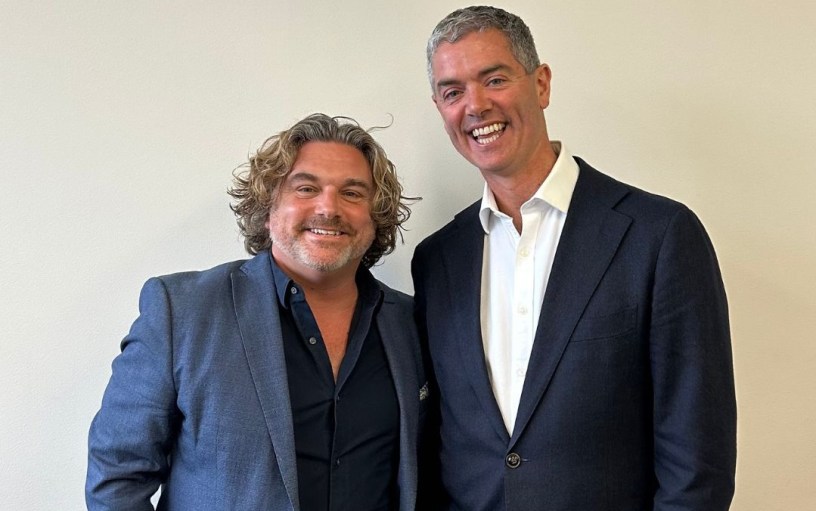The NSW Government has backtracked on its decision to cut $60 million from the state’s screen funding programs, announcing the Made In NSW fund and the Post, Digital and Visual Effects (PDV) rebate will continue in their existing forms.
Having been flagged the week before the Minns Government’s first budget, the changes were argued to be part of a broader $188 million cut to the Department of Enterprise, Investment and Trade featured in the former Coalition government’s Pre-election Budget Update in March.
The proposal sparked outrage across the broader screen industry, with Screen Producers Australia (SPA) describing the cuts as “devastating” while the Media, Entertainment and Arts Alliance (MEAA) said the decision would damage the state’s credibility and competitiveness.
Global visual effects giant DNEG, which recently opened a Sydney studio, also called on the NSW Government to reconsider, given the potential impact on infrastructure and job growth.
While both SPA and MEAA met with the government prior to it handing down its budget last Tuesday, they were not able to convince it then to reverse the cuts.
However, it seems as though the government has now heeded the industry’s call, with Arts Minister John Graham releasing a statement to stakeholders on Tuesdays outlining the reinstatement of the programs.
The Made in NSW fund is designed to attract high-end film and television to the state, with the pot bolstered $175 million over five years by the former Coalition government in 2020-21.
At present, the NSW Government offers a 10 per cent rebate on PDV and games development work carried out in the state with a minimum threshold of $500,000.
According to Graham, between the cut being made and the budget on September 19, there was a “significant increase in demand” in screen production, PDV work and digital games, meaning the remaining funds ran down much faster than projected and the government was forced to pause the pause the funds due to being unable to commit to future projects.
He went on to note that given the original funding term for the PDV rebate expires in 2023/24 and that Made in NSW expires in 2024/25, a new business case was needed for initiatives to secure ongoing support for the sector, adding Screen NSW had already begun working on it.
‘This will ensure that NSW remains a major destination’
The reversal of the cuts follows a campaign by screen workers, in which more than 1,000 people contacted their local MP in recent days to express their concern about the cuts.
Both the MEAA and SPA also joined the Screen NSW Film and Television Industry Advisory Committee and representatives from post-production and VFX studios in meeting with Graham to discuss the proposed changes.
Speaking about the decision to restore the cuts, MEAA chief executive Erin Madeley said it showed the government recognised the cultural and economic value of the screen sector in NSW.
“The state government has listened to the concerns of screen workers about these cuts and their impact on the industry, and it has acted quickly to guarantee continued funding,” she said.
“This will ensure that NSW remains a major destination for film and television production. We look forward to working together with the government to develop a sustainable screen policy for the state. The screen industry is an important part of NSW’s cultural and economic identity. It generates hundreds of millions of dollars in economic activity and supports thousands of skilled jobs and small businesses.”
Her sentiments were echoed by DNEG executive director Alaric McAusland, who said the restoration of the “critical” screen industry incentives would ensure “thousands of jobs, hundreds of businesses and vital training programs” remained in the state.
“We thank Arts Minister John Graham and Screen NSW head Kyas Hepworth for their deep engagement with DNEG and the industry over the past two weeks, for their swift action, and for their forward commitment to establishing new programs to grow the screen sector in our state,” he said.
SPA CEO Matthew Deaner said while there was still some work to do to fully restore NSW’s standing, he appreciated that the government has listened carefully and responded accordingly, also commeding the industry for their unity in addressing the situation.
“Screen is a significant and growing industry sector, which generates economic activity, employment, skills training and reinforces our cultural identity in a myriad of ways,” he said.
“Going forward, the industry is optimistic that we can advance the NSW sector on a positive footing and ensure that our creative industries here take their rightful place in the national and international economic and industry landscapes.
“In today’s meeting with the minister, we had the opportunity to canvas several positive steps that could help to secure and grow the state’s screen industry including working with the Federal Government and industry to develop a Screen Export Strategy, the need for additional infrastructure, programs for skills development and training and the generation of a ‘Screen Hub’ for the sector and for the NSW public.”
Interactive Games and Entertainment Association CEO Ron Curry also commended the government for its “willingness to listen to the impact that the sudden withdrawal of funding had on the local games development sector and the screen industry more broadly”.
“Ongoing games funding in NSW will result in consistent full-time game development employees working permanently in the state,” he said.
“These support mechanisms enhance conditions and act as an accelerator for NSW-based game development studios, and studios looking to establish a base in NSW, investing in the sector.”


